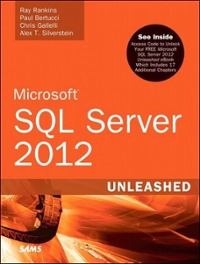Question
public class PlayerRec { //name of player private String name; //score record - you MUST use this for credit! //Do NOT change the name or
public class PlayerRec {
//name of player private String name; //score record - you MUST use this for credit! //Do NOT change the name or type //NOTE: you cannot use any arrays or JCF instances in your implementation. private ThreeTenDynArray
// ADD MORE PRIVATE MEMBERS HERE IF NEEDED!
public PlayerRec(String name){ // Constructor // set the name of the player and initialize the scores to be an empty list // you can assume name is not null // if you have other private members, initialize those as well }
public int count(){ //report the number of scores // O(1) return -1; //default return, remove or update as needed } public String name(){ //report the name of the player // O(1) return ""; //default return, remove or update as needed } public int totalScore(){ //report the sum of all scores of the player //O(1) return -1; //default return, remove or update as needed } public boolean addScore(int score){ // append a score at the end of scores record // return true if score appended successfully; // return false for any errors (e.g. a negative score) // amortized O(1) return false; //default return, remove or update as needed
} public boolean replaceScore(int game, int newScore){ //replace the score of the specified game to be newScore //return false for any errors; return true otherwise //O(1) return false; //default return, remove or update as needed } public int getScore(int game){ //return score of the specified game //return -1 for invalid game index //O(1) return -2; //default return, remove or update as needed } public ThreeTenDynArray
//****************************************************** //******* BELOW THIS LINE IS PROVIDED code ******* //******* Do NOT edit code! ******* //******* Remember to add JavaDoc ******* //******************************************************
@Override public String toString() { StringBuilder s = new StringBuilder(name()+","); s.append(count() + ","); s.append(totalScore() + ","); s.append(scores.toString()); return s.toString().trim(); }
public String toNiceString() { StringBuilder s = new StringBuilder("Player Name: "+ name() + " "); s.append(" Game Count: " + count() + ", "); s.append("Total Score: " + totalScore() + " "); s.append(" Scores: "); s.append(scores.toString()); ThreeTenDynArray
//****************************************************** //******* BELOW THIS LINE IS TESTING CODE ******* //******* Edit it as much as you'd like! ******* //******* Remember to add JavaDoc ******* //****************************************************** public static void main(String args[]){ //example tests //remember to change and/or add more of your test cases //create a player PlayerRec player1 = new PlayerRec("George"); if (player1.name().equals("George") && player1.count()==0 && player1.totalScore()==0){ System.out.println("Yay 1"); } //addScore if (!player1.addScore(-2) && player1.addScore(2) && player1.addScore(1) && player1.addScore(5) && player1.count()==3 && player1.totalScore()==8){ System.out.println("Yay 2"); } //uncomment to check details //System.out.println(player1);
//getScore, replaceScore, getTopGames if (!player1.replaceScore(5,5) && player1.replaceScore(0,5) && player1.getScore(6) == -1 && player1.getScore(0) == 5 && player1.getTopGames().toString().equals("[0, 2]")){ System.out.println("Yay 3"); }
//equals, toString PlayerRec player2 = new PlayerRec("Mason"); PlayerRec player3 = new PlayerRec("George"); if (!player1.equals(null) && !player1.equals(player2) && player1.equals(player3) && player1.toString().equals("George,3,11,[5, 1, 5]")){ System.out.println("Yay 4"); } } }
Step by Step Solution
There are 3 Steps involved in it
Step: 1

Get Instant Access to Expert-Tailored Solutions
See step-by-step solutions with expert insights and AI powered tools for academic success
Step: 2

Step: 3

Ace Your Homework with AI
Get the answers you need in no time with our AI-driven, step-by-step assistance
Get Started


